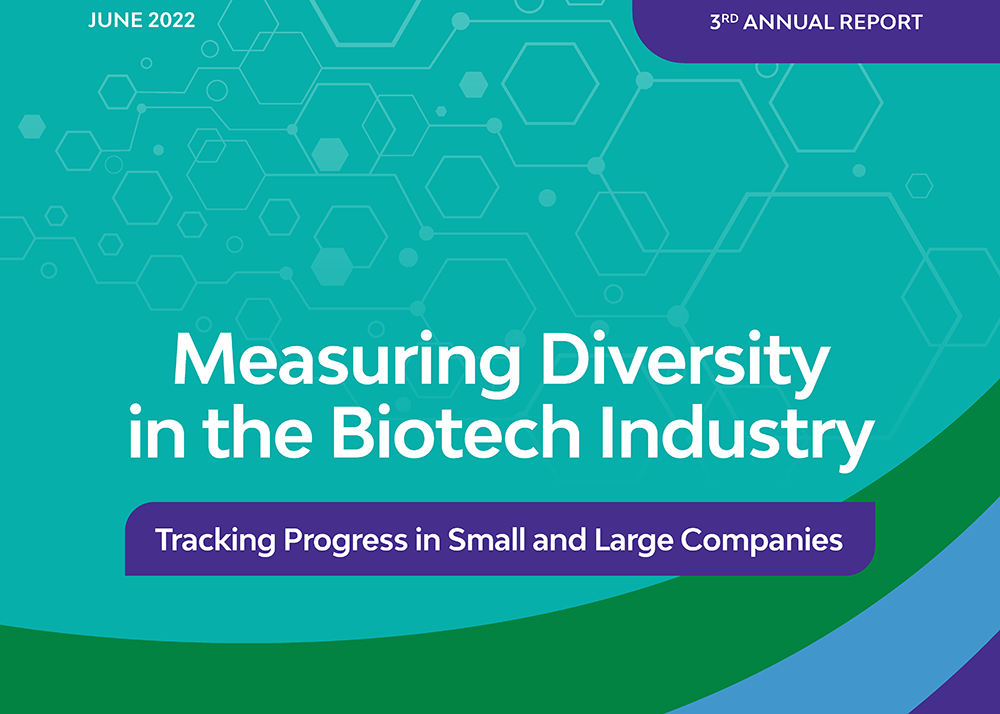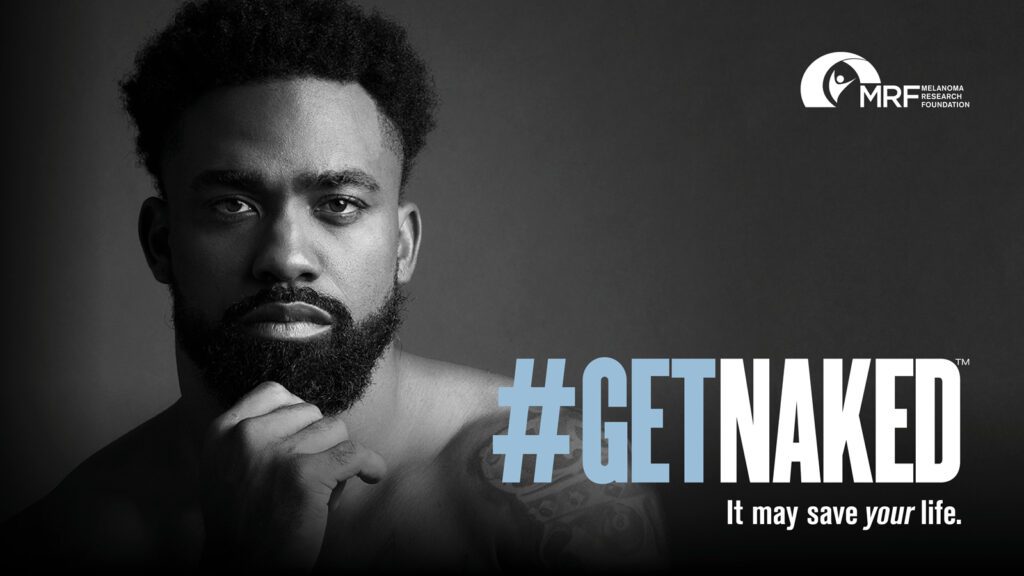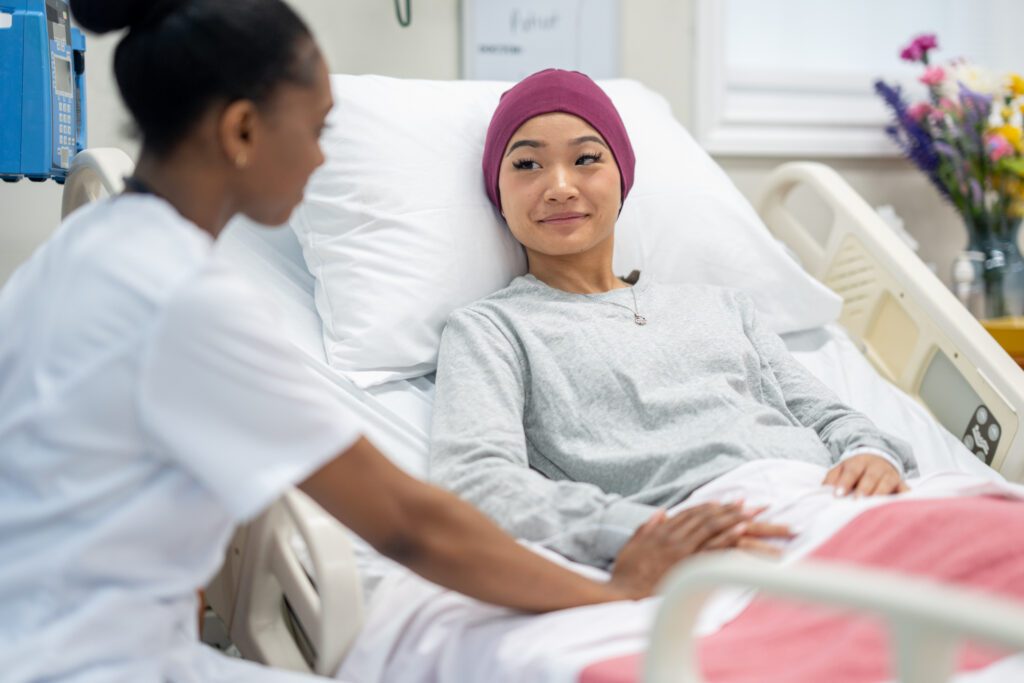The biotechnology industry’s focus on diversity, equity, and inclusion (DEI) in recent years has brought about improvement, but we still have work to do, according to BIO’s latest report on diversity in the industry, released today during a session on inclusivity.
Moderator Annalisa Barrett, Senior Advisor to KPMG led the session, “Best Practices for Building an Inclusive Biotech Company,” with a panel that included:
- Eric Dube, PhD, and President & CEO of Travere Therapeutics, Inc.;
- Charlotte Jones-Burton, the Senior Vice President of Product Development and Strategy Chinook Therapeutics;
- Veronica Sandoval, PhD, and JD Principal, Patient Inclusion & Health Equity at Genentech; and
- James Sapirstein Chairman, President & CEO of First Wave BioPharma, Inc.
BIO’s report on DEI
Before the panel discussion, Jyoti Agarwal, Managing Director of Coqual, presented the recent 2022 BIO report, “Measuring Diversity in the Biotech Industry: Tracking Progress in Small and Large Companies.” The report found, among other things, that the industry is close to parity when it comes to gender hiring, with 49% of biotech employees being women. However, the situation is less equal as you move up the corporate ladder to the C-Suite, with only 34% of executives on average being women while 66% are men.
These numbers highlight a problem area for the industry: To advance DEI initiatives, there has to be strong leadership to direct those initiatives, Agarwal said. “Eighty-eight percent of companies said that their employees consistently demonstrate a commitment to creating an inclusive environment,” Agarwal explained. “But that number drops to 69% on the leadership level. So you can see there’s a gap between employee commitment and leader commitment.”
Panel members echoed that sentiment. “It all starts with our CEO,” said Veronica Sandoval of Genentech. James Sapirstein of First Wave BioPharma, Inc. agreed: “It starts at the top.” For Sapirstein, the need for diversity and inclusion initiatives hit home. Not only did he change his original Latino name to a more anglicized version, his daughter, who works in biotech as well, also dealt with sexual harassment in the workplace.
After Sapirstein mentioned that some leaders in biotech who are part of the LGBTQ community, are still in the closet, Eric Dube of Travere Therapeutics, Inc. spoke about his experiences in big pharma.
“I believe that it’s not just about facts, but it really is about measuring progress,” Dube said, “In my early career in large pharma, as a gay man, I didn’t feel like I belonged,” but he added that the LGBTQ workforce is becoming increasingly empowered. “I can guarantee you that your companies are listening to the silence of CEOs that don’t prioritize DEI initiatives, and they will vote with their feet,” he said.
Now that he is in a leadership position, Dube said he uses his position to impact more change. “As a CEO I really have the opportunity to address what happens in the company,” he said, “but also in our local community.”
Going into the community
Charlotte Jones-Burton of Chinook Therapeutics agreed that the focus must go beyond the company. “Our DEI initiatives at Chinook Therapeutics start internally, but ultimately extend out to everything that we do,” she said. “We also think about the scientific leaders that we call upon. We want scientific leaders that represent the diversity of the patients that we work with.”
Sandoval made an unequivocal call for more action, “When it comes to clinical representation, all of us are failing,” and the COVID-19 pandemic made that clearer than ever, she said. “Our patients of color, especially our black and our Latino populations, were all being diagnosed with COVID at higher rates and dying at higher rates.”
Sandoval said the old clinical trial systems just weren’t working when it came to ensuring clinical trial diversity, so Genentech tried a new approach. “We took our trials to where our patients were: to the community,” she said. Rather than relying on academic centers where trials were traditionally happening, Genentech made connections that helped them with outreach to local communities that had been underserved in clinical trials.
“I believe that each of us wants to make this world a better place, a healthier place, and a more equitable place,” Dube said when asked to sum up. “It’s great to have words on a page, but what’s really important is the action. … As an industry, we have to stand for humanity. We have to stand for human health, and we have to stand for opening access to inclusion and innovation.”




